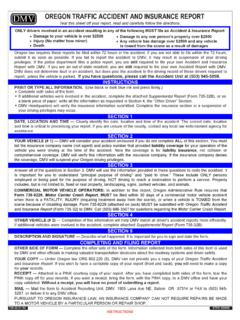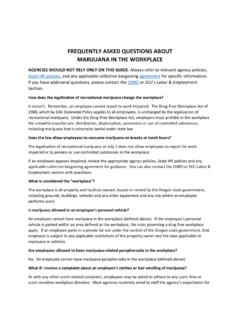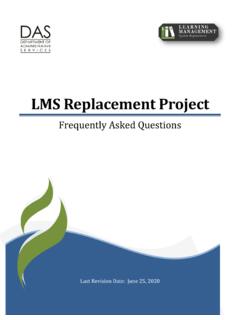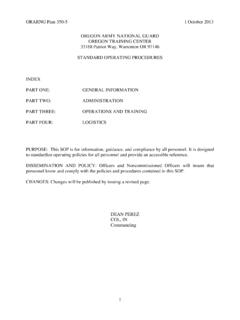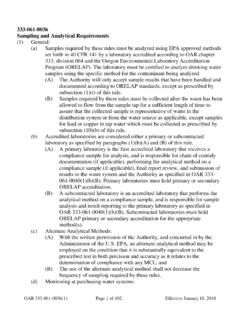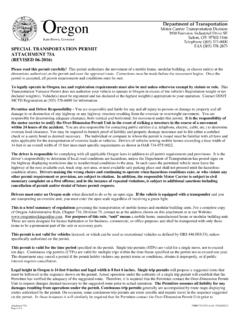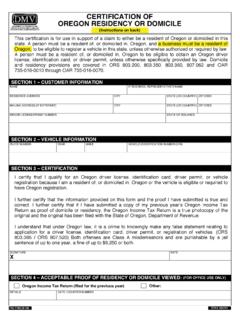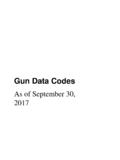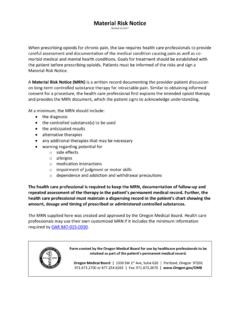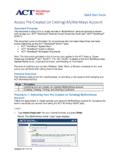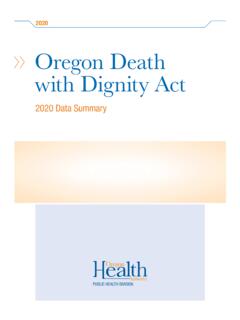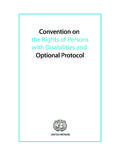Transcription of Minor Rights: Access and Consent to Health Care - Oregon
1 Minor Rights: Access and Consent to Health Care A resource for providers, parents and educators Not a legal document. This resource is intended to provide basic information about minors' ability to Consent to Health care services, as well as how Health care information is treated in Oregon . It is not intended to be a legal document or a substitute for legal advice or direction on specific client or Health care provider questions related to the topics covered in this publication. Adults will want to be aware of minors' Consent rights in order to support good communication with the youth in their lives.
2 The information in this guide summarizes and references, to the best of our understanding, federal laws and Oregon state laws ( , Oregon Revised Statutes or ORS), and not those of other states. The document also does not attempt to address other physician best practices, recommended standards of care or institutional policies related to client decision-making. To find the most current versions of these laws, refer to the links provided throughout the publication. PUBLIC Health DIVISION. Adolescent Health Program The dilemma The process to ensure Health care Access , confidentiality and privacy can be quite complex when it pertains to minors.
3 Every day, Health care providers are attempting to figure out: (1) which services a Minor can obtain without parental Consent ; (2) when a parent can Access a Minor 's Health information; and (3) when Minor Consent must be obtained before the provider can share the Minor 's Health information. State statutes, federal laws and regulations provide a complicated patchwork of requirements that often do not fit neatly together and may be challenging to interpret and implement. Unfortunately, no single rule can be applied to all situations. However, a good place to start is with a resource like this that compiles all the requirements.
4 Great care has been taken to present accurate information that is as clear as possible with citations to the entire text of the law or regulation. We encourage anyone wrestling with these issues to use this document as a starting place while establishing a process that will encourage minors to seek care while maximizing their confidentiality and privacy. Who is considered a Minor and why does this matter? Under Oregon law, anyone under the age of 18 is considered a Minor (ORS [definition of Minor ] and ORS [age of majority]). However, if a Minor has been formally emancipated by the courts, some laws pertaining to minors are waived (ORS [emancipation of a Minor ]).
5 See ORS through for further details. In general, a Minor 's age determines whether he or she is able to Access Health care services independently or if parental or guardian Consent is Minor required. Additionally, some services that a Minor can Access independently can be kept Any person confidential, while others cannot. This can be helpful information in order to plan the under the age of 18. most appropriate Health services for children and youth. Understanding Consent What is Consent ? Consent is an acknowledgement (usually in writing) of any or all of the following: The patient understands the treatment he/she will receive.
6 The patient authorizes the treatment. The patient understands how private information will be shared. All Consent should be informed Consent (ORS ). Informed Consent for Health services should be verbal or in writing and includes: a description of the treatment the patient will receive, a description of alternative treatments and a description of any risks involved with the treatment. Below are some examples of when written Consent is needed: If someone outside of your Health care system requests your Health records; or If you want someone else to have Access to your Health information.
7 Minors may be able to request certain levels of confidentiality or Consent to various Health care matters depending on their age. Health care professionals may be able, or even required, to disclose certain Health information about Minor patients (such as reportable diseases or suspected abuse or neglect). -1- Common Health services and Consent Although many adults help Minor children make Health care decisions, there can be times when a Minor child does not need or want this involvement. Below is a brief (not exhaustive) list of common services and their consenting requirements in Oregon .
8 Medical and dental services (ORS ). Minors who are 15 years or older are able to Consent to medical and dental services without parental Consent . This includes hospital care, as well as medical, dental, optometric and surgical diagnostic care. This would include services such as: Treatment for illnesses or injuries (colds, sprained ankle);. Sports or camp physicals;. Dental visits (check-ups, cleanings, fillings);. X-ray services;. Emergency room visits;. Vision care (except for first time contact lens visit); and Immunizations. Mental Health and chemical dependency (ORS ).
9 A Minor who is 14 years or older may Access outpatient mental Health , drug or alcohol treatment (excluding methadone) without parental Consent . These services may include: Seeking help from a psychiatrist or psychologist;. Seeking mental Health therapy from a doctor or social worker; and Seeking help for drug or alcohol use. Providers are expected to involve parents by the end of the Minor 's mental Health , drug or alcohol treatment unless: The parent refuses involvement;. Clear clinical indications to the contrary exist and are documented in the treatment record.
10 There is identified sexual abuse; or The Minor has been emancipated and/or separated from the parent for at least 90 days. For mental Health and chemical dependency services, the provider may disclose Health Mental Health and information to a Minor 's parent or guardian chemical dependency per ORS if: Although minors age 14 and older can Access outpatient mental It is clinically appropriate and in the Minor 's Health and chemical dependency services independently, parents best interests; are expected to be involved in their treatment at some point.
